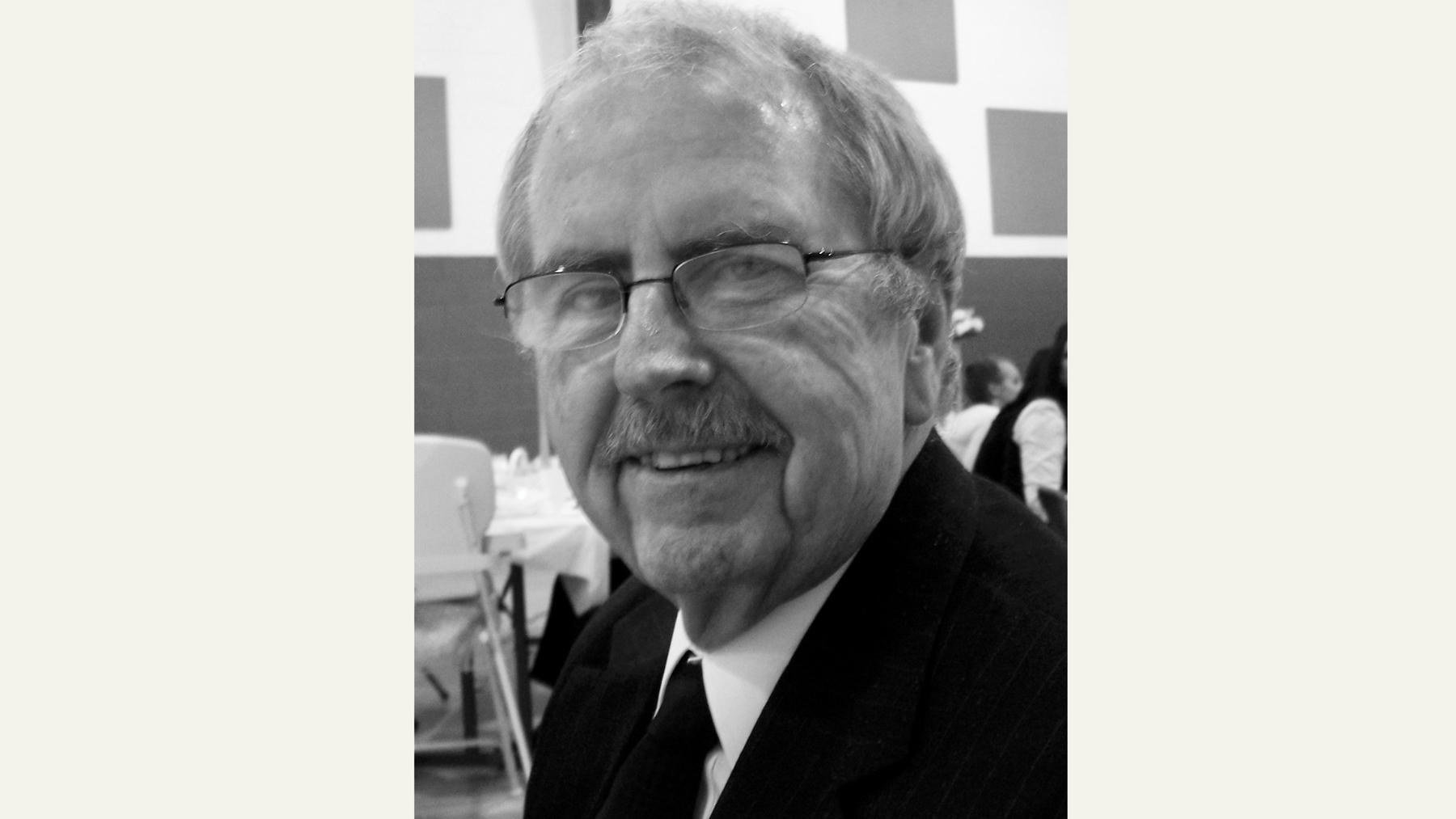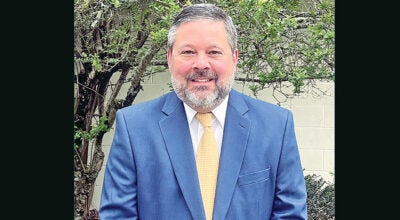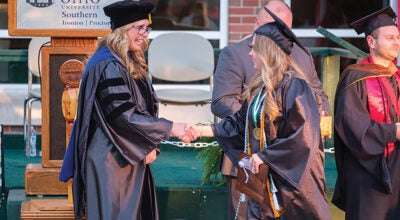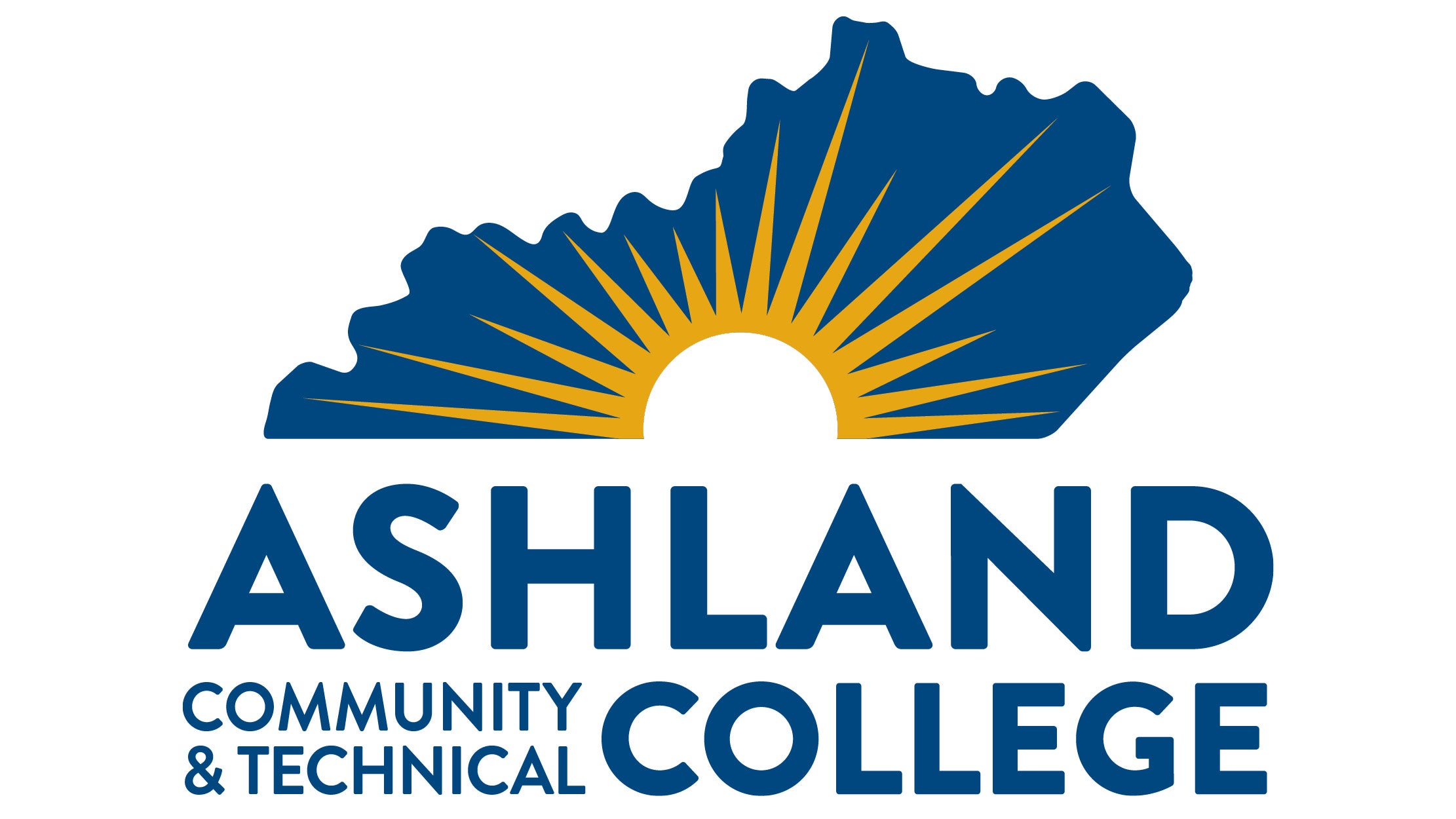OUS mourns its beloved ‘Mr. Wizard’
Published 12:00 am Saturday, December 5, 2020

- Dr. Robert Culp, Jr. died Saturday, Nov. 28 at age 80.
Culp remembered for role in founding science education on campus
Staff at Ohio University Southern are mourning one of their most popular former faculty members.
Dr. Robert A. Culp Jr., who taught chemistry at the school for more than 18 years, died Saturday, Nov. 28 at age 80.
Culp, who retired from the school in 2014, was first hired as a visiting lecturer through a partnership with Ashland Oil, where he worked at the time as a chemist.
“He was a brilliant person and just gave so much to the southern campus and the students,” Bill Dingus, who served as executive director and the first OUS dean, said. “It was off the charts.”
Dingus hired Culp, who was initially going to stay for three years.
“We asked him to come join us. He helped design our science program — the facilities and the curriculum,” Dingus said.
Among the contributions he credited Culp with are the development of a Fund for the Improvement of Postsecondary Education project for the campus.
The federal grants allowed students to work on things such as the development of alternative energy.
“It was great for Ironton to have that and it was a real success,” Dingus said.
Gary Payne, the assistant director of maintenance and operations at OUS, said he worked with Culp for about four years before he left the school.
I always liked him,” Payne said of his fellow faculty member.
He said Culp made major contributions to science education at OUS.
“He basically got things up and running,” Payne said of Culp and the chemistry program. “He got a lot of grants and money from Ashland Oil for them.”
Dingus said Culp was a major founder in establishing the science program at OUS.
“He was known as “’Mr. Wizard,” and that was a title well deserved. He was definitely one of the bright spots in my career at OUS.”
Culp traveled around the world in his work and Dingus said he took many groups from the school on trips to places like England and Germany.
“He would wear you out,” Dingus said. “Because he wanted you to see everything.”
Culp was known for his love of teaching science to children and would often appear as The Science Wizard at events.
“He had a mobile home that he converted,” Payne said of Culp’s vehicle for the character. “He would take it in the Memorial Day parade each year.”
An Eagle Scout, he was committed to scouting and served as scoutmaster of Boy Scout Troop 92, of which his son was a member. He also served as the director of the Nature Center at Lake Vesuvius, which he established.
There, visitors could learn about plants, as well as native wildlife, such snakes, geckoes and turtles and even see a possum that Culp had raised.
One of the most popular events at the center was an annual Halloween walk through the woods, led by a grim reaper and followed by a reading of Washington Irving’s “The Legend of Sleepy Hollow.”
Bob Leith, a retired history professor with OUS, said Culp’s interest extended to history as well.
“I worked with him a lot,” he said, stating that they, along with another professor, Steve Call, would regularly organize events with a historic them.
Leith was particularly proud of a Freedom Fest they put together for the lawn of the Ironton Courthouse in 2008, in which they invited James Getty, one of the country’s most acclaimed Abraham Lincoln re-enactors, to deliver the Emancipation Proclamation.
Leith said three schools came out for the event to see Getty in his stovepipe hat and regalia.
“We really did it up big,” he said.
He had in his possession a tract Culp had prepared for the event, which featured writing about several topics, such as the area’s historic industries and information about the routes enslaved people took on their escape through Ohio.
“It talked about how they would follow the Big Dipper and things like that,” he said.
Leith said he also worked with Culp and others regularly for events at the Nature Center.
He was hard working and a great lover of history,” Leith said. “He was so cooperative and had a great sense of humor. Ohio University in Athens respected him and so did the students.”
Leith said that students in Culp’s science program were more advanced than others in similar programs and had an advantage when seeking jobs.
“And they were so enthused,” he said.
Dingus said he often talks to many who took those classes who have been successful in their fields.
“I hear from them periodically and I know they were inspired by Bob Culp,” he said.
Leith said though Culp had a stroke in the years before his retirement, his enthusiasm for teaching was not diminished.
“It did not diminish his ability to work with others,” he said.
Leith said Culp was innovator who often came up with ideas for the campus that no one else had thought of.
“He was a huge contributor,” he said. “He was a great professor and a great man.”
Dingus said Culp was a “tremendous person.”
“He could really inspire the students,” he said. “There was no one like Bob Culp.”
A native of Gadsen, Alabama, Culp attended the University of Alabama, where he earned his Master’s Degree, followed by a PhD. He conducted post-graduate research at Perdue University and taught at the University of Alabama, Duke and Kent State, before going to work as a chemist for Texaco in the Gulf coast, followed by his employment at Ashland.
Services for Culp will take place in Alabama for the family in the summer.




